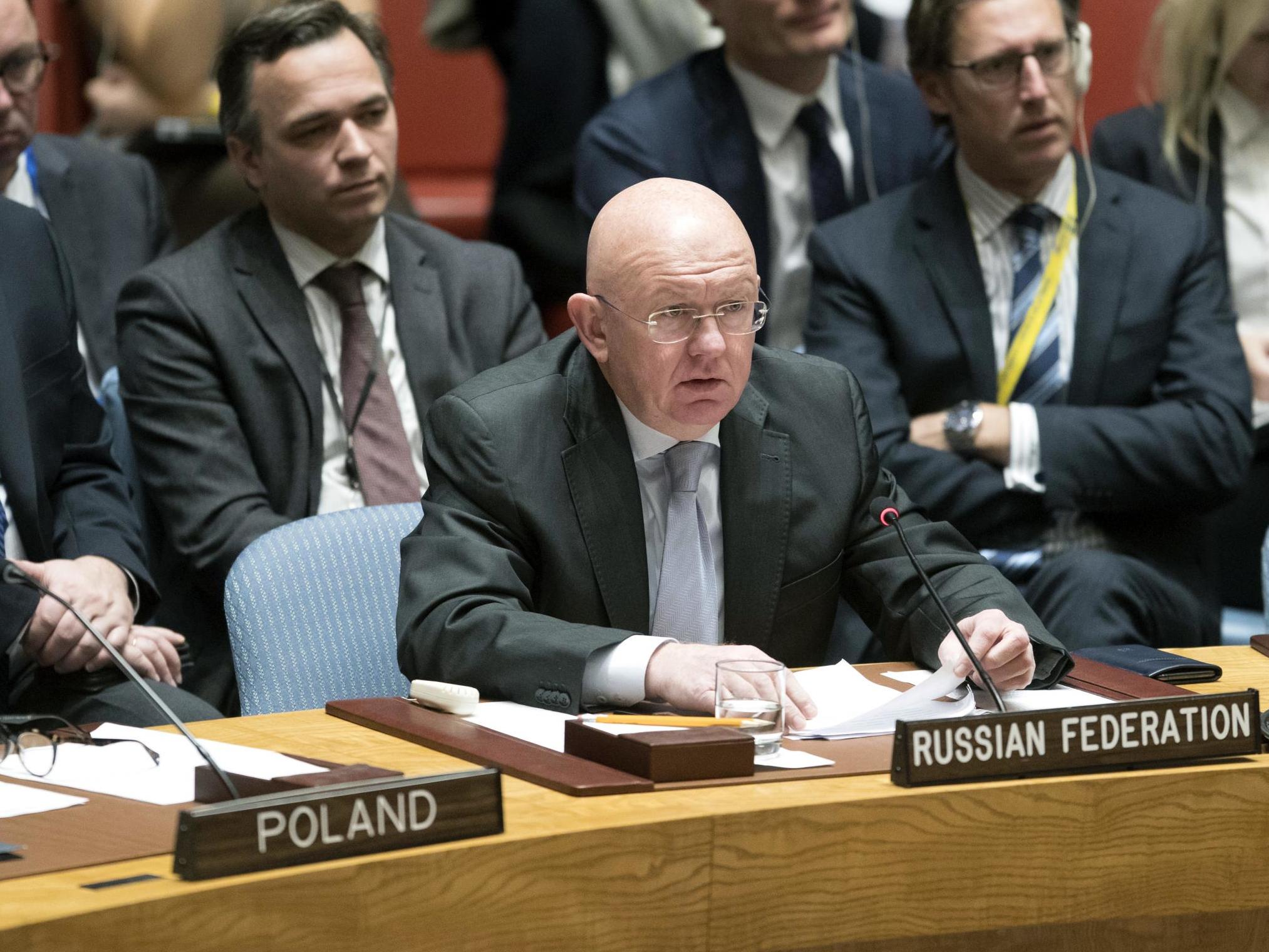Russia-US relationship 'practically non-existent', Moscow's UN ambassador says
Vassily Nebenzia says current situation bad for entire planet

Russia-US relations are “practically non-existent” with little prospect of improvement while Donald Trump is president, Moscow’s UN ambassador has said.
Vassily Nebenzia said the current situation between the two superpowers was bad not only for Washington and Moscow but also for the rest of the world.
He suggested that because Russia had become a major issue in US domestic politics after being accused of interfering in the 2016 US elections, he did not believe things could get better while Mr Trump remained president.
“Given the vulnerabilities that drift around this administration, I don’t see too bright prospects for improving [relations] any time soon,” Mr Nebenzia said in a wide-ranging interview.
He did however add that Mr Trump “understands pretty well that it’s better to cooperate”.
Mr Nebenzia also echoed Vladimir Putin’s view that Mr Trump’s decision to pull troops out of Syria was a good move, though he expressed some scepticism about whether the announcement would become a reality.
“It will be helpful and conducive to the eventual Syrian settlement,” he said.
If and when the US leaves Syria, Mr Nebenzia said, America’s Kurdish allies in the northeast should reintegrate into Syrian society, and “their rights and interests should be taken into account in the final settlement”.
Looking more broadly at the US position in the world, Mr Nebenzia said he did not believe Washington was retreating.
“It’s that the balance of power in the world is changing,” he said, “and we definitely witness the rise in a multipolar world” where other centres of power, not only Russia and China but India, Brazil and Africa “all want to be a part of the world governance and they want their voice to be heard and their interests taken into account”.
Turning his attention to North Korea, Mr Nebenzia said that Mr Trump must offer the rogue state incentives to move forward towards denuclearisation, adding that the situation “is stalemated at the moment”.
Russia and China have backed an easing of sanctions to spur momentum, but the US insists that North Korea must first make major steps towards eliminating its nuclear programme.
Mr Nebenzia said he was concerned about a roll-back to the 2017 era of increasing nuclear and missile tests and escalating rhetoric.
“I think that the US hopefully is starting to understand that the situation may go [back].”
As for Iran, Nebenzia said he worries about US strategy if its sanctions do not bring about the changes in behaviour the Trump administration wants. He sees “a danger if they go to the limits”.
“I’m worried if anybody wants to go to war with Iran, and that is the enigma and the question – what is the strategy about Iran?” Mr Nebenzia asked.
Agencies contributed to this report
Join our commenting forum
Join thought-provoking conversations, follow other Independent readers and see their replies
Comments
Bookmark popover
Removed from bookmarks